 Probable outcome: Removal of WOC Qualification races seems very probable as all suggested programs are without qualification. A split WOC – Forest and Urban alternating years – is one possible scenario – but as of now it is difficult to know if this has enough support among the member federations. Do you know what your federation will vote for in these matters?
Probable outcome: Removal of WOC Qualification races seems very probable as all suggested programs are without qualification. A split WOC – Forest and Urban alternating years – is one possible scenario – but as of now it is difficult to know if this has enough support among the member federations. Do you know what your federation will vote for in these matters?
As for the detailed program, introduction of sprint relay is one option which seems to have some traction – probably a mixed relay, but could also be separate gender. Possibly a chasing start will be introduced – but the outcome here is not clear – and it also depends on if it is decided to go for a split WOC. If the split WOC alternative is chosen, there could very well also be a KnockOut sprint on the program.
The IOF General Assembly 2012
The decisive body of the IOF is the members in General Assembly. Each IOF member has the right to send three delegates to a General Assembly. Each member represented at the General Assembly, except for provisional members, has one vote.
Two of the most interesting points on the agenda: The future WOC program which has been discussed extensively the last years is finally to be decided – and a new IOF President is to be elected. Friday’s General Assembly in Lausanne could prove to be very important for the future of the sport of orienteering.
The election of new IOF President is important as the President has significant influence of important matters within the sport. The WOC program is important as it over time will probably have big consequences for how competitions are organized in the member countries, how successful orienteering will be in a TV perspective, “the olympic dream” and many other aspects related to orienteering.
Relevant documents/links:
- IOF Congress Binder 2012 – all information about the General Assembly and what is to be discussed
- Webpage: General Assembly 2012
- IOF_Biennial_Report_2010-2012
- IOF Council’s discussion of the propositions ahead of the General Assembly
WOC in the Future: Alternatives
Four different alternatives are on the table in the discussion of the new WOC program which will be decided on the General Assembly:
- NORD proposal: Organize a “Terrain” WOC and “Urban” WOC in alternating years. The terrain WOC would include the existing Middle, Long and Relay disciplines plus one additional “first-to-finish” discipline [Suggested to be 25 minutes prologue + 25 minute chasing start]. Qualifications races removed, and qualification for the middle and long distance races would be based upon some form of nation strength system. The new additional distance and relay would be open to equal participation for all nations. The urban WOC would include the existing individual start sprint discipline (with qualifications and final), a knock-out sprint discipline based upon the experience of the World Cup (NORT) and a sprint-relay. For the urban WOC, “equal participation of all IOF nations for all distances will be possible”. An important detail in the NORD proposal is that terrain and urban Regional Championships (e.g. European Championships) be held alternating years, but in the opposite cycle to WOC.
About qualification for long/middle, it is seen that this is a “problem yet to be solved” – and it is suggested that an IOF working group will establish a qualification scheme: “We recognize that exact qualification rules need further development and feel that this can be achieved within a reasonable timeframe for a future WOC program. There seems to be agreement that qualifications races, as currently run at WOC, can be removed from the program. But none of the qualification methods presented so far have received broad agreement among member federations.”certaibasic qualification criteria be establishedand that an IOF working group, led by Council, be established to decide upon anexact set of rules to be presented in connection with the next years PresidentsCouncil in Finland 2013. - Swiss proposal: The Swiss proposal suggests to keep a yearly WOC week, but include a chase start event (45-60 minutes winning time) and get rid of the qualification races for long and middle. Up to 4 starters for each nation instead of 3 as today – but less starters for the “smaller” nations. Starters for long/middle: Every nation 1 start slot, eventually a required minimum World Ranking score, 2 to 4 slots for the top 12 nations according to the IOF’s nations ranking (per gender), red start group, reigning champion has a personal start slot.
- Italian proposal: The Italian proposal suggests to keep a yearly WOC week, get rid of qualification race for long and include a mixed relay. It also includes a specific form of spreading for the long distance. Nations are ranked based on results achieved in the one previous WOC Long Final. The first 6 Nations in the placing of previous WOC are guaranteed three places (one only placed athlete counts). The second 6 Nations in the placing of previous WOC are guaranteed two places (one only placed athlete counts). All other entering Nations, whether they took part in the previous WOC or not, are guaranteed one place. Regional place. Each Region is guaranteed a personal place of the reigning Region Champion. Should the reigning Regional Champion of a Region be also the World Champion, then the Vicechampion of that Region will be guaranteed a personal place. World place. The reigning World Champion is guaranteed a personal place
- IOF Council proposal: The IOF Council proposal suggests to keep a yearly WOC week, get rid of qualification races for long and middle, keep the sprint as it is today, and include a mixed relay. Regarding qualification for long/middle final, it is stated: “According to nation’s strength, maximum 3, all nations guaranteed one starting place + reigning World Champion. Seeded start order”. I.e., no details are given.
Thus nothing points towards removal of middle and long finals today, but the qualifications for long and middle seem to be “in danger” of being removed. Everything points towards the sprint staying like it is today with qualification and final. The WOC might be split in two parts. There might also be introduced new disciplines: Sprint relay (either mixed gender or separate gender), Chasing start, KnockOut sprint.
WOC in the Future: Decision process
There will probably be three rounds with discussions / voting:
- Discussion regarding removal of qualification races from the WOC program
- Splitting of WOC program in “Forest WOC” and an “Urban WOC” – being organized alternating years.
- Details of the WOC program. If annual WOC is decided, discussion/voting would be over Swiss/Italy/Council suggestions. If split WOC, discussion/votiing would be over details about split WOC program. For the split WOC proposal, a possibility would be to let a working group work out the details.
WOC in the Future: Background & Discussion
The stated reason for changing the WOC program in the WOC in the Future group was: “… to raise the attraction of the World Championships for athletes, media and spectators, to broaden the participation and open up the Championships for new orienteering nations, and to strengthen the World Championships as the primary showcase for orienteering by positioning it for high quality TV coverage.” Thus this should be kept in mind when reading the proposals.
An interesting point on the topic of the future WOC program is that one of the main drivers for changing the WOC program seems to be improved TV coverage of orienteering (see both the text below and the text in several of the proposals). On the other hand, discussion with TV people give no clear answer as to whether any of the suggested changes to the WOC program will position orienteering better for TV coverage. There has been and is a lot of speculation into which changes in orienteering are good for TV ; the suggestion to remove the individual middle distance is just one example about a proposal which was said to be good for TV which was clearly not (as the SOFT TV Workshop in February 2012 concluded that the individual middle distance is the best suited discipline for TV).
Other topics for General Assembly: Adventure racing
Another proposal to be discussed at the General Assembly is a proposal by Spain to include adventure racing in the IOF family:
We propose to include adventure racing in the IOF family as an official discipline to be governed by the IOF. Adventure racing is a young and dynamic sport with a core element of orienteering and endurance. Given the major progress and maturity this sport has experienced in the last decade and the popularity adventure racing has come to enjoy in a number of countries worldwide we believe that the IOF should seize the moment and include adventure racing into the orienteering family. […] Despite the very complicated economic situation Spain currently is experiencing the sport of adventure racing remains strongly supported by many companies through sponsorships. This is in no small part due to the sports clear profile and spectacular nature, which appeals more and more to the written media as well as television. In many orienteering countries in Southern Europe adventure racing has become a major contributor for the creation of awareness about orienteering. With this in mind we have no doubt that the inclusion of adventure racing into the IOF will strengthen orienteering in general.
The IOF Council does not recommend the inclusion of adventure racing, stating:
“Very few of our federations administer or seek to administer adventure racing. The format of adventure racing around the world is very diverse and in many cases involves no navigational activity. The majority of activity is commercially driven with a clear profit motive and it would be impossible for the IOF to exert full control over the activity, for example regarding anti-doping matters. Finally, the IOF has scarce resources for its existing disciplines and adding a further discipline would simply dilute our impact.”
Urban WOC document
I received a document which looks into many specific details of how to organize an “Urban WOC” and consequences for smaller nations some time ago. This is an interesting read which illustrates that there are a lot of aspects to be considered to make a good decision.
 World of O News
World of O News
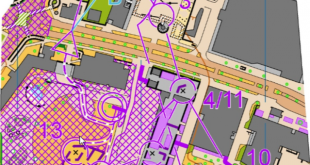
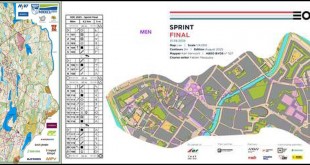
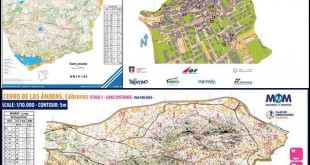
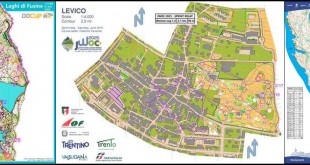
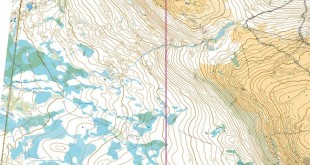
NORD FTW!
I hate the idea of urban WOC. I will miss top athletes who probably won’t care and will skip it. Also the new competitions seem to be untested (except in top 5 orienteering countries). Are we really going to value knock-out sprint gold the same as the long distance gold? Orienteering is mainly forest sport, please keep it so!
One up for forest sport. also i would say it would be fair, if every country has the same number of orienteers.
Add night orienteering to the Urban WOC year. Would be interesting to know who is the worlds best night orienteerer.
The Urban WOC document is interesting. But it seems the quarantine aspect is completely missing. I don’t think a programme that will have either unfair competitions or require the top athletes to be in a quarantine for up to 9 hours on the qualification day will ever become reality.
KEEP WOC AS IT IS!
Only profit-hungry people want to change it! Top orienteers all together have protested against such changes.
KEEP WOC AS IT IS
lets keep in mind that eliminating qualification races does not help the small nations. it means making into the final is less of an achievement, and it makes better results in the final harder (due to so many strong nation runners).
it is also unfair that a “weak nation” have less starters. look at New Zealand. they have many up and coming great runners, but in these proposed systems, not all of them will be allowed to run! how then will New Zealand improve to become a strong nation?
lets also remember that it is all the strong nations that want a system that guarantees them lots of starters, so that they have better chances of medals.
And if you are a country that only has one runner in an event with no qualification, you will never be able to get a WOC placing to move up to the next tier.